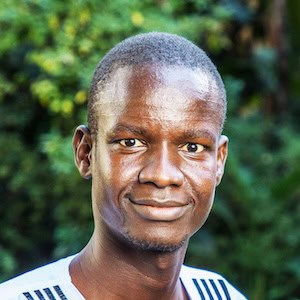-
Weekly Roundup: Oxford’s BoP Debate, Why ‘Old’ Arguments are Still Worth Our Time
Although a little more than two months old, “Responsible Capitalism or Business as Usual” a passionate and multi-faceted debate has been pinging its way around the Web in recent weeks. The forum hosted University of Oxford’s Saïd Business School is worth your time, even if many of the arguments and counter arguments are familiar.
- Categories
- Uncategorized
-
Guest Post: @ Rio+20 True Engagement: Discussions on Bringing the BoP into Product Development, Marketing
During the Business Day, my organization, the World Business Council for Sustainable Development (WBCSD), organized a session focused on “Eradicating poverty through inclusive business solutions”. In a nutshell, the session in Rio highlighted inclusive business models from different sectors and countries as examples of sustainable, market-based solutions in support of poverty eradication and social inclusion in the developing world. It encouraged companies to embrace inclusive business activities by identifying key success factors and opportunities.
- Categories
- Education
-
A Jobs Tale: Recruiting Workers for Husk Power
We were there to recruit electricians and linemen for our operations team. These men would be trained via Husk Power University and then sent to the field to assist especially in preparation for the upcoming monsoon months. Husk invests a lot in its employees, so it is important that we not only attract, but more importantly, retain talent once they are trained.
-
Gender Roles in Green and Inclusive Business – Replicating Old Patterns or Breaking New Ground?
The green economy has the potential to empower women – but risks replicating old gender patterns of the ‘brown’ economy, says a new DCED / GIZ study. How does the case look for social entrepreneurship and impact investing?
- Categories
- Agriculture, Education, Environment, Social Enterprise
-
Achieving Green and Inclusive Markets Through Public-Private Collaboration: A Bright Spot at Rio
In the midst of the shortcomings of the recent Rio+20 Earth Summit, there were bright spots that offered hope that a sustainable future is possible.
One of these was a half-day session at the Rio+20 Corporate Sustainability Forum called, “Enabling green and inclusive markets – a case for public-private collaboration.” A joint initiative of the Donor Committee for Enterprise Development and the United Nations Global Compact, in collaboration with WRI’s New Ventures initiative, the session offered a glimpse of how “green” and “inclusive” markets can flourish as a result of the collaborative efforts of entrepreneurs, governments, civil society, and bilateral and multilateral donors.- Categories
- Energy, Environment
- Tags
- renewable energy
-
NexThought Monday: How ‘Itty-bitty Multinantionals’ Can Serve the World’s Rising Middle Class
Two recent articles, "The Itty-Bitty Multinational" in the Atlantic by Elizabeth Littlefield, the president and CEO of the Overseas Private Investment Corp.; and by Coca-Cola Chairman and Chief Executive Muhtar Kent in BBC News, examine new ways of thinking about how home-grown businesses, entrepreneurs, and multinationals can both succeed at business and best serve consumer demands.
- Categories
- Uncategorized
-
Weekly Roundup: Flushed – Is This Any Way to Crowdsource a Social Enterprise?
On Tuesday, founder and CEO of Good Goods, took a seat on the throne and didn’t get off until 50 hours later - all while under the watchful eye of a webcam. By then Simmon Griffiths and company had raised more than $50,000 in pre-orders to fund the first bulk production run of Good Goods’ new line of toilet paper: ‘Who Gives A Crap’. Working with WaterAid, the company plans to dedicate 50 percent of the paper’s profits to build toilets and improve sanitation in developing countries.
- Categories
- Health Care, Social Enterprise, Technology
-
(With Video) Tenda Atacado: Providing Credit, Business Services to a Network of BoP-Focused Stores Across São Paulo
In São Paulo, more than 60 percent of microenterprises fail within the first five years—often due to lack of access to credit. The failure rate for small businesses in developed countries is about the same, but not for the same reasons, of course. Most small entrepreneurs in Brazil are excluded from the financial system: banks are reluctant to lend them in the absence of credit history, depriving them from access to financial services or credit to grow their businesses.
This is where Tenda Atacado Ltda, a retailer and wholesale distributor in the state of Sao Paulo, enters this story.- Categories
- Uncategorized










